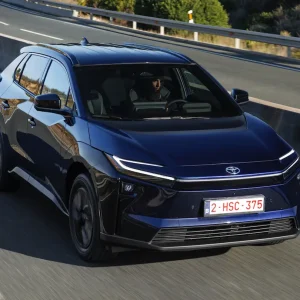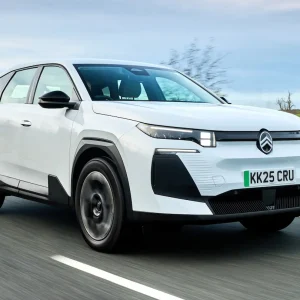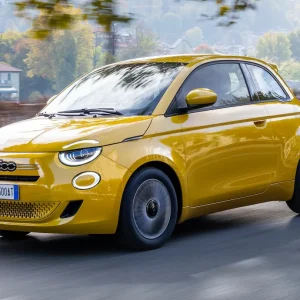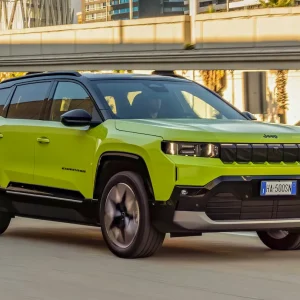Okay, so you’re not about to see hordes of iQs sitting in the company car park. However, there’s no doubt that in our small-is-beautiful, credit crunched, eco-friendly times, Toyota‘s city car could be the right car at the right time.
While the iQ might not spring to mind as the most obvious fleet car, with local authorities and city-based firms increasingly looking to smaller and more eco-friendly models it could be an unlikely hit. No small car fleet manager worth their salt is going to dismiss 67.3mpg average fuel economy and 99g/km emissions out of hand, despite the iQ’s high £9495 list price.
We’ve seen small cars like this before, most notably the Smart Fortwo, but the iQ is a tad under three metres long and yet can seat (at a push) four people inside using an unusual 3+1 seating arrangement. That’s room for two extra passengers – although the ‘+1’ seat behind the driver is strictly for children – and it only requires a parking bay 300mm longer than a Smart.
The iQ uses the same three-cylinder 68PS 1.0-litre engine as the Aygo, making it capable of the 0 to 60mph sprint in 14.1 seconds and giving it a 93mph top speed. More crucial, though, is the 67.3mpg average fuel economy and the 99g/km CO2 emissions, which makes it VED exempt.
How does all this translate out on the road? The answer is surprisingly well especially against the slightly unnerving, tip-toey feel of the Smart. Unlike many micro-sized cars there’s no feeling of the driving experience having been compromised, and thanks to the 830kg kerb weight it doesn’t feel as slow as the on-paper figures suggest either. The engine noise is relatively minimal and that three-cylinder engine actually emits a pleasant off-beat thrum. The ride quality is excellent, too, while the turning circle is a hysterically tiny 3.9m as well – 0.3m less than the Smart.
Inside, there’s a surprising amount of head and legroom and headroom for an adult sitting on the main rear seat, and the likely everyday set-up is probably as a three-seater with the +1 seat folded down flat as a makeshift boot – there is no luggage space otherwise.
However, the interior lacks the fun or neat design touches you find in the Mini, Fiat 500 or the Smart Fortwo. It looks a bit too clinical, functional and, well, Toyota-like.
There’s no doubt that the iQ is a very clever piece of engineering and packaging. Pitched against the Smart, it’s more expensive and slower, but boasts better handling, fuel economy, running costs and two extra seats in a not-that-much-greater parking space. Against the popular Fiat 500, it loses out in character and again performance, but is cleaner, more economical and considerably smaller. Toyota may not have produced a faultless small four-seater, but it has come pretty damn close.





